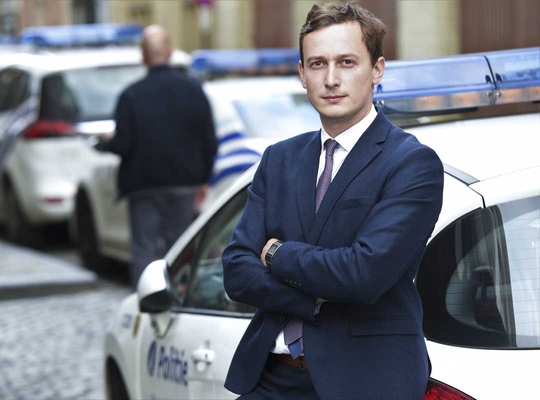You are here
Large-scale anti-drug activities by the police and the courts will hopefully relieve Minister-President Vervoort of his blinkered view

The discovery of a new criminal world throughout Brussels as a result of the large-scale drugs operation by the federal police will hopefully relieve Minister-President Vervoort (PS) of his blinkered view. “It is time for the Brussels government to treat the fight against organised crime as a priority again,” Brussels MP Mathias Vanden Borre says.
Tackling organised crime is not a priority at all in Brussels. In the previous Brussels Regional Security Plan, organised crime was still a priority theme, but that is no longer the case in the new plan for 2021-2024. “I have repeatedly warned Rudi Vervoort about criminal gangs and organised crime in Brussels. He invariably reacts laconically. Before the summer holidays he said: ‘Violent crime is generally decreasing, and there is no objective evidence of a significant increase in the activity of organised gangs on Brussels territory.’ What nonsense,” Mathias Vanden Borre says.
Organised crime has become increasingly entrenched in the fabric of society
Aside from that, there are also Brussels policymakers - and academics - who minimise the existence of urban gangs and drug gangs in Brussels. “That has allowed organised crime to penetrate the fabric of society and embed itself ever deeper unhindered. Not only is the hospitality industry a sensitive sector for the infiltration of organised crime, so are massage parlours, car rental companies, car washes, gold shops, sports clubs and even the Brussels Vroegmarkt, where a considerable amount of cocaine was recently discovered,” Mathias Vanden Borre states.
Shootings and escalating street violence
In the meantime, Brussels has again had to deal with escalating street violence. In October, Molenbeek was plagued by several shootings. There was one victim in each of three of the four shooting incidents. “The incidents remind us of the turbulent summer months of last year. At the time, many drug-related settlements took place in the streets of Brussels, linked to rival drug families who had been fighting a territorial war for months to control the drug trade. Even then, Brussels administrators didn’t open their eyes,” says Mathias Vanden Borre.
Fragmentation works to the advantage of criminal gangs
The fact that the criminal network has so far managed to remain largely inconspicuous is partly due to the Region’s inability to form an accurate picture of organised crime in Brussels. “The added value of the regional security institution Brussels Prevention & Security (BPV) has unfortunately not yet been demonstrated. It just seems like an extra layer of crème fraîche on top of the Brussels millefeuille. Moreover, the fragmentation between the Brussels-Capital Region, the municipality and the six police zones works to the advantage of criminal gangs. Yet if the Brussels-Capital Region had the best possible knowledge of the phenomenon, it would be able to take more effective measures in the fight to combat organised crime,” Mathias Vanden Borre concludes.

